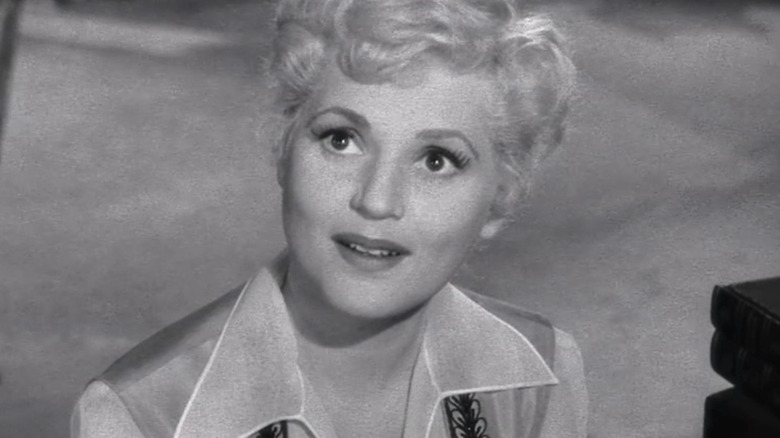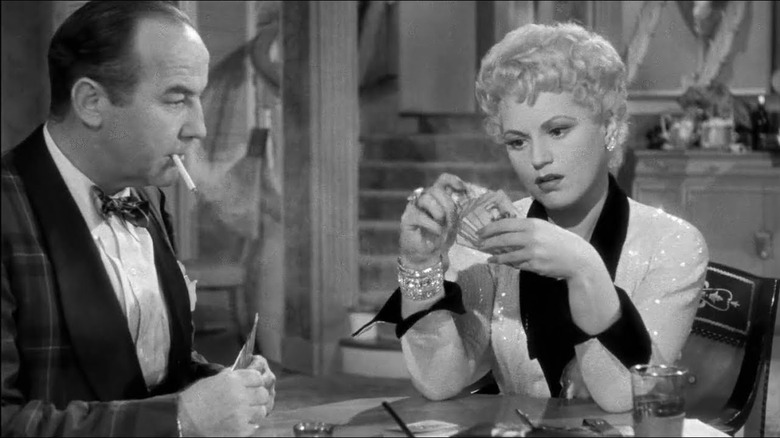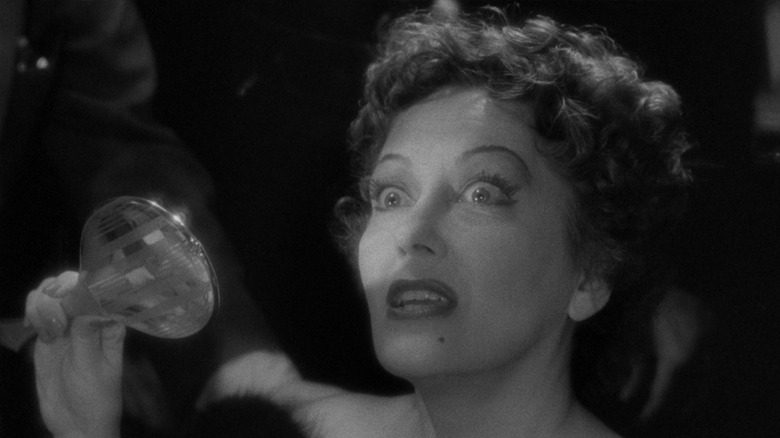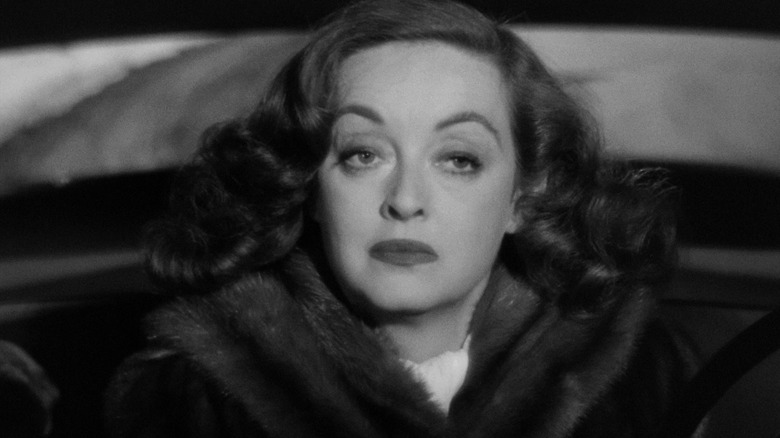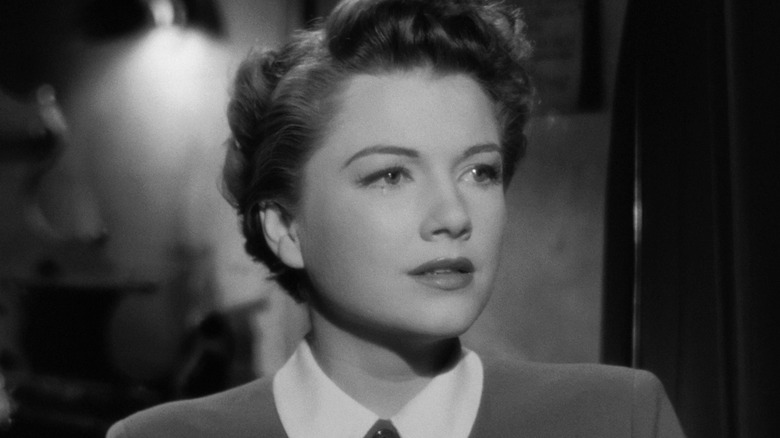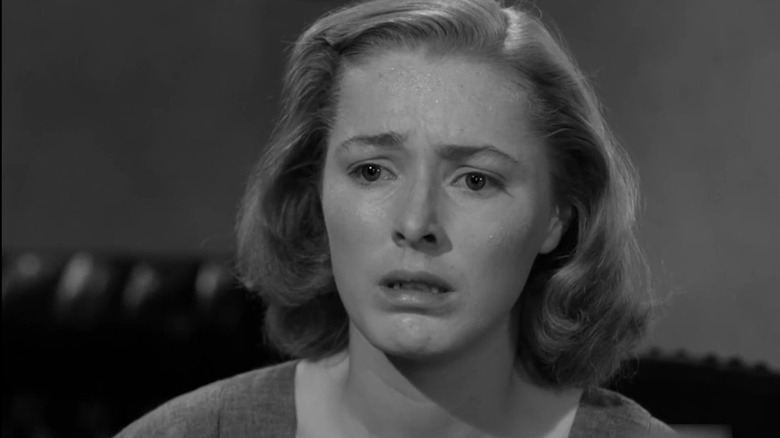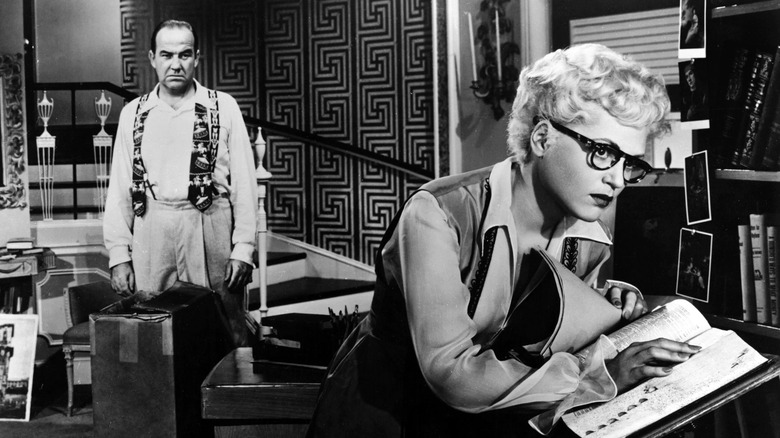Was The 1951 Best Actress Race The Most Competitive Oscars Category Of All Time? An Investigation
(Welcome to Did They Get It Right?, a series where we take a look at an Oscars category from yesteryear and examine whether the Academy's winner stands the test of time.)
In any given year, you're lucky to have even one performance by an actor that is genuinely considered to be iconic. I know that is a word that gets thrown around enough nowadays that it means almost nothing, but every so often, that is really the only word you can use. These are the performances that you would show to an alien as the benchmarks of cinema. I'm talking about Marlon Brando in "The Godfather" or Judy Garland in "The Wizard of Oz"-level stuff. Well, 1950 produced three. All of them are women, all three played actors, and they all competed against each other in the Best Actress category at the Academy Awards. You have Bette Davis and Anne Baxter as the dueling theatre actors Margo Channing and Eve Harrington in Joseph L. Mankiewicz's Best Picture-winning masterpiece "All About Eve" and Gloria Swanson taking on the reclusive former silent film star Norma Desmond in Billy Wilder's Hollywood noir "Sunset Boulevard." A titanic trifecta.
They all lost. Was it to an equally iconic performance? Not exactly. They lost to Judy Holliday for the George Cukor comedy "Born Yesterday," reprising the role she played on Broadway for over three years to great acclaim. While the other three women took on these meaty, biting roles, Holliday played what became the prototype for the reductively labeled "dumb blonde." It rocketed her to stardom, but "Born Yesterday" hasn't remained in the popular cinematic consciousness like those other two films. Clearly something like vote splitting must have occurred, right? The voters couldn't have just ... liked Judy Holliday the best.
Comedy and the Oscars
The relationship between comedy and the people who love cinema is extremely odd. On the one hand, people know that comedy never gets enough respect and lament why more comedic performances aren't recognized by the Academy. On the other hand, when they are recognized, it's chalked up to a weird fluke that could never have happened sincerely. We are 30 years removed from Marisa Tomei winning Best Supporting Actress for "My Cousin Vinny," and there are still conspiracy theories about how that could've happened. It's as if people like the idea of awarding comedy more than actually awarding comedy.
Go back and watch "Born Yesterday." Judy Holliday completely burns up the screen. With her deliberately squawking voice and complete self-confidence, you see how this is a performance just about every single woman has copied in a comedy since. You like Jean Hagen as Lina Lamont in "Singin' in the Rain?" She's doing a Judy Holliday impression. Every inflection of her voice is funny. She'll be in a shot with four other people, just sitting, and you can't help but chuckle at her. This is clearly the performance of an incredibly smart woman playing someone deliciously dim without the slightest hint of condescension or judgment. She also never turns the character into a ditzy sexpot to gawk at, which female comedic leads are so often asked to do.
Is she playing a deeply layered character going through some kind of emotional roller coaster? No, but that's not what the role calls for. And if your only metric for what makes good acting is playing parts like that, that is an exceptionally narrow view of what makes for great cinema and storytelling. If comedy is indeed as valid as drama, their high watermarks should be looked at on the same level.
Who was in second?
It's tricky determining the runner-up to Judy Holliday. That choice is what partly inspires all the vote-splitting conversations. How could you choose between Gloria Swanson and Bette Davis, with the less seasoned Anne Baxter lurking too? If I were to guess, I think Swanson was running in second place because the two "All About Eve" women would've done some of their own vote-splitting. Swanson isn't battling with anyone else on screen and utterly consumes everything around her in "Sunset Boulevard." Swanson also won the Golden Globe and National Board of Review awards for her performance, signaling a decent amount of support.
"Sunset Boulevard" was Swanson's third Oscar nomination and her first in 20 years. This film resurrected the actor's career who rose to stardom in the silent era, adding to the meta element of the Norma Desmond character. Swanson totally understood the impact of this performance and how it would affect her legacy, writing in her book "Swanson on Swanson":
"[M]y present dangers seemed to lie in the fact that I had played the part too well. I may not have got an Academy Award for it, but I had somehow convinced the world once again of that corniest of all theatrical clichés — that on very rare artistic occasions, the actor actually becomes the part. Barrymore is Hamlet. Garbo is Camille. Swanson is Norma Desmond."
And she's right. Chances are strong the only movie starring Gloria Swanson most people can name is "Sunset Boulevard." That portrait of a delusional, fading movie star has only grown in stature over the decades. It's rare to see a movie montage that doesn't feature her line reading of, "All right, Mr. DeMille, I'm ready for my close-up." Her place in cinema history has rightfully been firmly established.
Looking for her third
Bette Davis was no stranger to the Academy Awards. Her talent was so evident that when her first "Oscar-worthy role," in 1934's "Of Human Bondage," was snubbed at that year's awards, the backlash was so immense that the Academy subsequently allowed the option for write-in voting. But she ultimately couldn't overcome Claudette Colbert for "It Happened One Night." She won the very next year with her first official nomination for "Dangerous." "All About Eve" would mark her eighth nomination for Best Actress, coming six years after her previous nomination for "Mr. Skeffington," which was her longest gap between nominations to that point. So, while she'd had plenty of Academy success, Davis wasn't exactly on a hot streak.
But "All About Eve" almost couldn't have been more successful at the Oscars, receiving a record-tying 14 nominations and winning six, including Best Picture, Director, and Screenplay. You'd think such a dominant performance would simply carry her to the win — it absolutely revived Davis' legendary career. She certainly thought she should have won, saying plainly to Playboy in 1982, "I should have had it for 'All About Eve,' and that was another case of the stage thing — Judy Holliday's winning for 'Born Yesterday.'" Davis believed reprising a role you did on stage should be its own separate category, as she also lost to Anne Bancroft for "The Miracle Worker" 12 years later, adding, "Playing a part you've never played before is a much bigger test. They make this kind of distinction in other categories; with writers, for instance."
Davis may think that external forces prevented her from her third Academy Award, but I'm of a different mind about it. The reason I believe she was running in third is simply due to the fact of seeing her name listed right next to her co-star's on the ballot.
How can you choose?
It's rare that a film that lauded by the industry to contain so many dynamic parts for women. "All About Eve" received four acting nominations just for the women in the film, a milestone no other film has matched in the history of the Academy Awards. Best Supporting Actress recognized both Celeste Holm and Thelma Ritter, and in lead, we had Bette Davis facing off against Anne Baxter. Two actors being nominated in the same category is surprisingly common. In the 95 years of the Oscars, it's happened 74 times, mostly in the supporting races. What is rare, though, is one of those two actors winning, which happens only about one-third of the time.
When you are pitted against your co-star, choosing one over the other often proves to be incredibly difficult unless one of them has a particular narrative that is more appealing to the voters. Take this past year with Jamie Lee Curtis winning for "Everything Everywhere All at Once" over Stephanie Hsu. Curtis had never been nominated before after nearly 50 years in the business, and Hsu was fresh on the scene. The Academy loves a career win.
The actual text of "All About Eve" puts Bette Davis in direct competition with Anne Baxter, and the two are so evenly matched that most would struggle to pick a side. I would actually choose Baxter, as I think the Eve character is the more challenging role and requires a deftness that Margo Channing gleefully disregards. Holm and Ritter both lost in their race too. Tellingly, the only actor to win for "All About Eve" was George Saunders for Best Supporting Actor, as he didn't compete against his own movie. I think enough people agreed with me to catapult Davis' chances.
The under-discussed fifth nominee
The 1951 Best Actress race was filled with big names and big performances, making it a tantalizing year for fans of classic Hollywood. However, there is one nominee that doesn't have that glitzy reputation, and that's Eleanor Parker getting nominated for the women's prison film "Caged." Parker had been a contract player at Warner Bros. for about a decade prior to this performance. She was one of those actors that the company knew had a massive amount of talent, but she always found herself playing supporting parts or in the lead role of movies that didn't work for one reason or another. "Caged" was the penultimate film she made at Warner Bros., and it was finally the film where it all clicked.
Standing at a sharp contrast from the other four glamorous nominees, "Caged" gives Parker a raw, hefty role that she gets to completely tear into that ultimately led to her winning the Best Actress prize at that year's Venice International Film Festival, beating out the likes of Ingrid Bergman for "Stromboli." Like Judy Holliday, this was Parker's first nomination, and she would go on to earn two more within the next several years. Unlike Holliday, though, this wasn't the star-making turn "Born Yesterday" was. Yes, it propelled her career forward and made people see her as a viable, dynamic actor, but becoming a full-fledged movie star was not something a small prison drama was going to do.
Every year, there's that one nominee everyone is happy to see get into that five, but we all know that the nomination itself is the prize for them. To take it back to this past year again, this was Paul Mescal getting nominated for "Aftersun." It almost doesn't matter if the work is stellar. The awards machine makes its own rules.
Let Judy have one
Sadly, Judy Holliday would only go on to star in six more movies in her career. Partly, this was due to her still being indebted to the stage and starring in shows like "Bells Are Ringing," for which she won the Tony Award (and would also star in the film adaptation in 1960, marking her final film role). But mainly, her career was cut short by devastating health issues. First there was a throat tumor, and then she ultimately developed breast cancer and passed away from it in 1965. "Born Yesterday" would be the actor's only Oscar nomination.
Billie Dawn was such an indelible character that she basically played it when she was questioned about possible pro-Communist activities in her life, allowing her the ability to "play dumb" while simultaneously not naming names that would get people blacklisted from the industry. At the time, people assumed Holliday was Billie, but to pull off a performance like that takes a tremendous amount of skill. With so many imitators and homages coming afterward, we can see so clearly just how difficult this work actually was. I'm glad Judy Holliday won this Oscar, because this was the only opportunity to reward this tremendous talent who worked in a genre the Academy rarely acknowledges.
Yes, this means Gloria Swanson also would never win an Oscar and found herself in an iconic part she wouldn't really be able to escape afterwards, but she at least was able to enjoy a good amount of success prior to "Sunset Boulevard." If either woman won, I'd be happy. Honestly, any of the five would have been a worthy winner, and for that to be true at the Academy Awards — especially in the Best Actress race — is a win for the history of movies.
